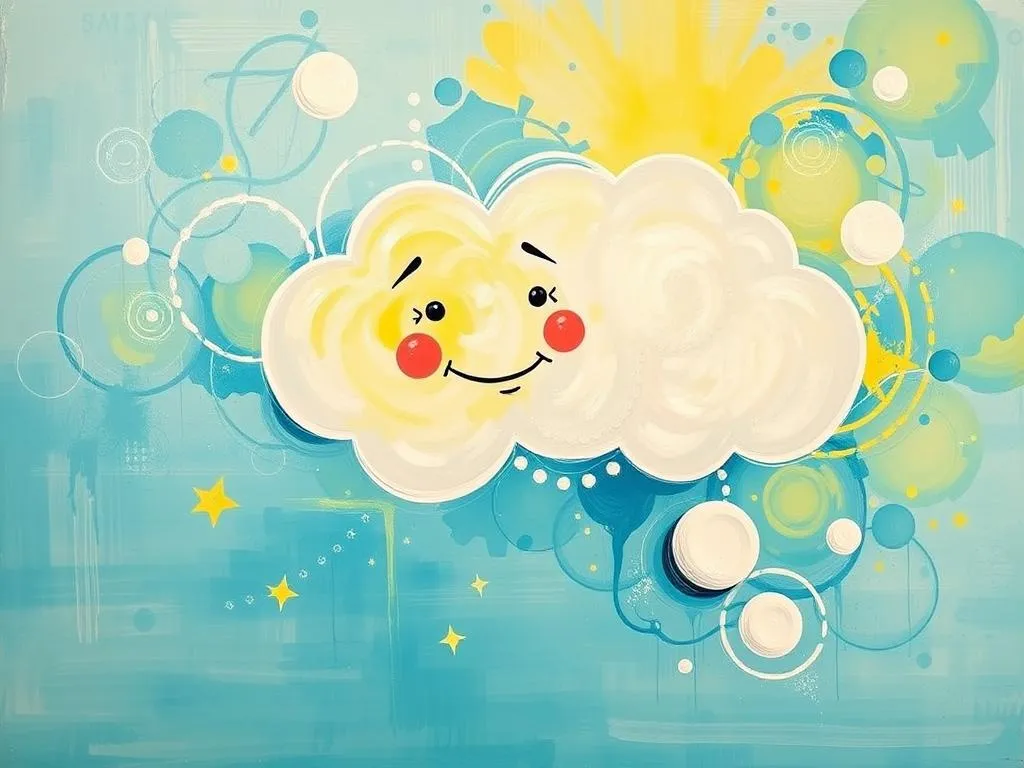
Have you ever woken up from a dream feeling more confused than when you fell asleep? You’re not alone! Dreams can often feel like puzzles, leaving us with fragments of images and emotions that linger throughout our day. Whether it’s a recurring nightmare or a whimsical fantasy, each dream carries a message from our subconscious, waiting to be unraveled. As your friendly guide through the labyrinth of dream symbolism, let’s embark on a journey to decode these nightly messages and discover their hidden wisdom.
In our exploration, we will delve into the rich tapestry of symbol analysis, share relatable experiences through various dream scenarios, and ultimately guide you toward personal growth. So, grab a comfy seat and let’s unlock the secrets of your dreams together!
Dreamscapes Revealed: Dissecting the Symbols
Every dream is a unique tapestry, woven with symbols that speak to our innermost thoughts and feelings. Understanding these symbols can provide valuable insights into our waking lives. Let’s break down some of the key symbols you might encounter in your dreams:
-
Water: Often represents emotions and the subconscious. Calm waters might indicate peace and serenity, while turbulent waves can signify emotional turmoil.
-
Flying: A symbol of freedom and escape. If you find yourself soaring through the skies, it could reflect a desire to break free from constraints or a sense of empowerment in your waking life.
-
Chase: This common dream motif often symbolizes anxiety or an unresolved issue. If you’re being pursued, it might be worth examining what you’re running from in your life.
-
Falling: A profound symbol of loss of control or fear of failure. It may suggest an area in your life where you feel unsteady or insecure.
-
Death: Contrary to its literal meaning, death in dreams often signifies transformation. It can indicate that something in your life is coming to an end, making way for new beginnings.
-
Teeth Falling Out: This unsettling image often relates to self-image and concerns about aging or loss of power.
-
Being Naked in Public: A potent symbol of vulnerability and exposure. It may reflect feelings of inadequacy or fear of judgment from others.
Understanding these symbols is the first step toward unlocking the deeper meanings of your dreams. Each symbol serves as a clue to your internal landscape, revealing the emotions and thoughts that might be lurking beneath the surface.
Dream Diaries: Relatable Scenarios from the Night
Now that we’ve explored some symbols, let’s delve into a few dream scenarios that you might find relatable. These narratives will illustrate how different dreams can connect to our real-life experiences, and perhaps shed light on your own nightly adventures.
1. The Exam You Didn’t Study For
Imagine finding yourself in a classroom, sitting in front of an exam you completely forgot about. Panic sets in as you realize you haven’t studied at all. This dream often signifies pressure and fear of failing in some aspect of your life—be it work, relationships, or personal goals. It’s your subconscious urging you to prepare and confront your challenges head-on.
2. Lost in a Familiar Place
You’re wandering through the hallways of your old high school, but everything feels distorted and unfamiliar. This dream can represent feelings of nostalgia or unresolved issues from your past. It may also highlight a fear of regression or being stuck in a place where you no longer fit.
3. The Inescapable Meeting
You’re stuck in a never-ending meeting, and no matter how hard you try, you can’t escape. This scenario often speaks to feelings of powerlessness or frustration in your waking life. It may reflect a situation where you feel trapped, whether that’s in your job, a relationship, or personal circumstances.
4. The Unfinished Project
You’re in a dream, frantically trying to complete a project that’s due tomorrow, but you can’t find the materials or your notes. This dream can symbolize procrastination or anxiety about your ability to meet expectations. It serves as a reminder to take action and prioritize what truly matters.
5. The Encounter with an Ex
You find yourself having a conversation with an ex-partner, feeling a mix of nostalgia and regret. This dream often points to unfinished business or unresolved feelings. It may be a signal to reflect on past relationships and how they’ve shaped your current emotional landscape.
These scenarios serve as a mirror to our daily lives, revealing our fears, desires, and unresolved conflicts. By recognizing these patterns, we can gain clarity on the underlying issues that affect us.
Dreaming Forward: Cultivating Personal Growth
Having explored the symbols and relatable scenarios, it’s time to focus on how these insights can foster personal growth. Dreams are not just entertaining stories; they are powerful tools for self-discovery and transformation. Here are some practical steps you can take to harness the wisdom of your dreams:
1. Keep a Dream Journal
Start a dream journal where you can jot down your dreams as soon as you wake up. Pay attention to recurring symbols or themes. This practice will help you identify patterns and gain deeper insights into your subconscious mind.
2. Meditate on Your Dreams
Take time to reflect on your dreams through meditation. Find a quiet space, close your eyes, and visualize the dream. Ask yourself questions about the symbols and emotions involved. This will create a deeper connection to your inner self.
3. Seek Guidance from Others
Consider discussing your dreams with a trusted friend or therapist. Sometimes, an outside perspective can reveal insights you might have missed. Engaging in open conversations about your dreams can also foster deeper connections with others.
4. Embrace Change
If your dreams highlight areas of discontent or unresolved issues, take it as an invitation to embrace change. Whether it’s making small adjustments in your daily routine or addressing larger life goals, use your dreams as a springboard for growth.
5. Practice Self-Compassion
Be gentle with yourself as you navigate the complexities of your dreams and emotions. Understand that dreams often reflect our deepest fears and desires. Practice self-compassion and recognize that the journey of understanding your dreams is a path toward healing.
Dreams are a beautiful blend of mystery and insight, offering us a glimpse into our subconscious. Each symbol, scenario, and emotion is an invitation to explore our inner world. As we embrace the messages from our dreams, we open ourselves to a transformative journey of self-discovery and personal growth.
In the end, remember: You are the author of your own story, both in your waking life and your dreams. Take the time to explore and understand the narratives your subconscious is weaving for you. By doing so, you empower yourself to create a life that resonates with your true self—one dream at a time.







